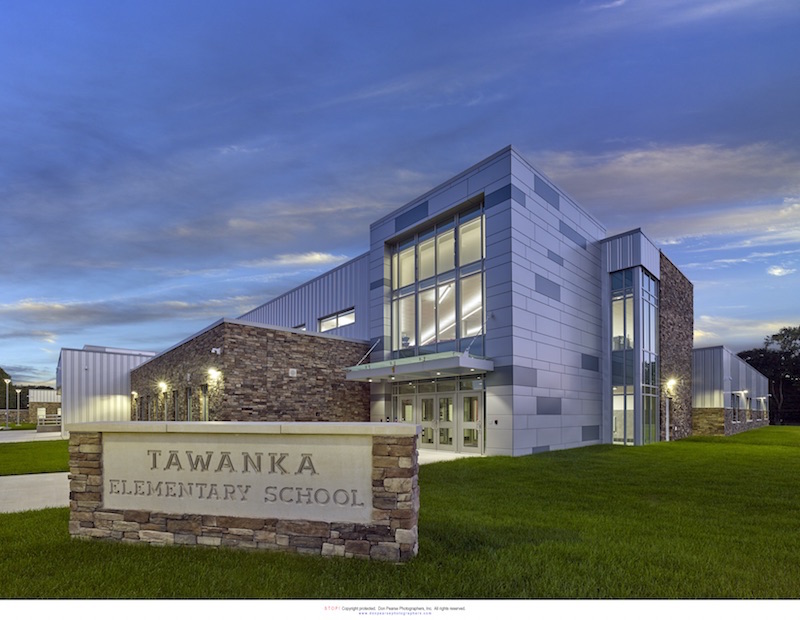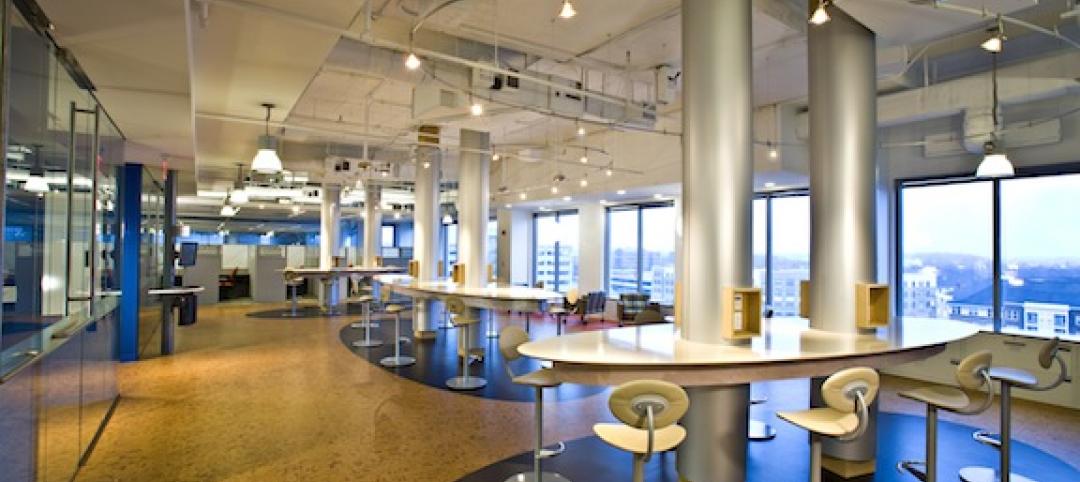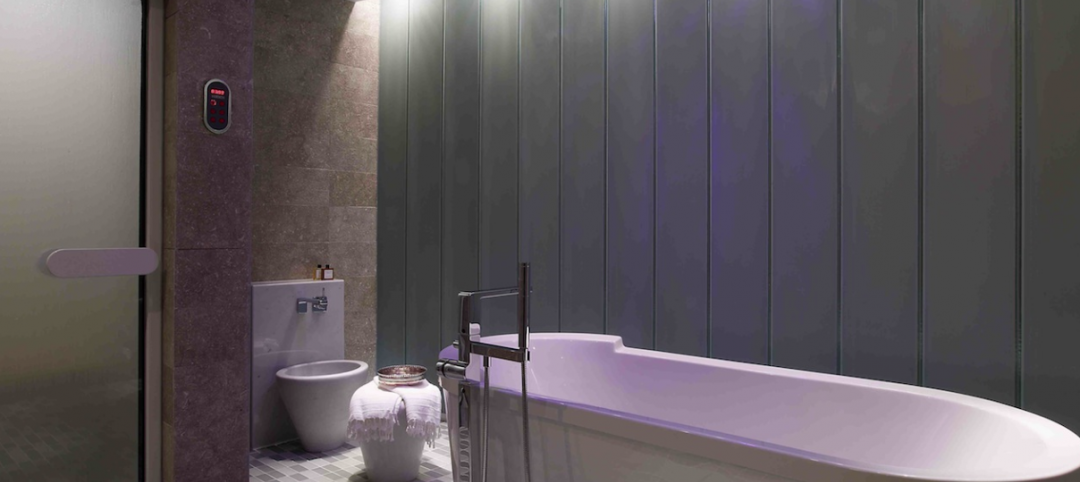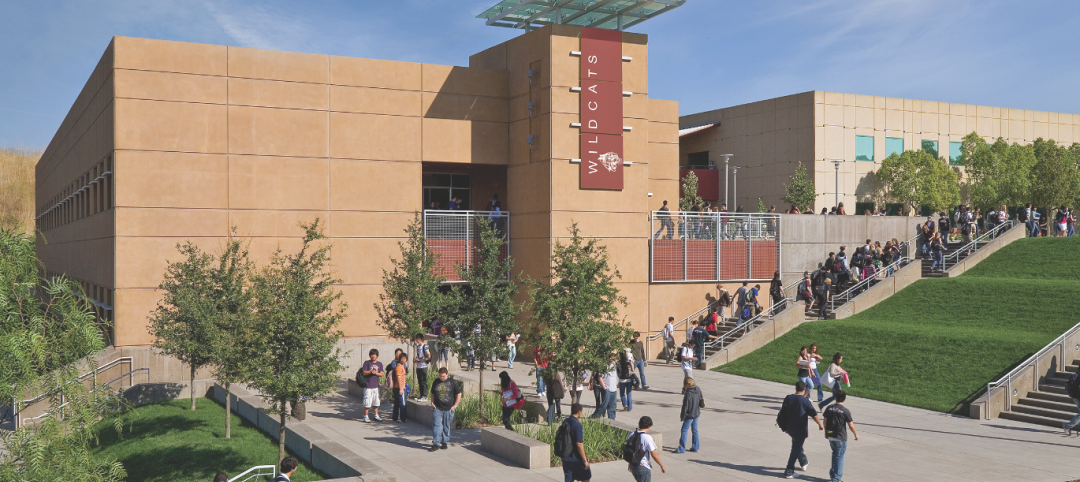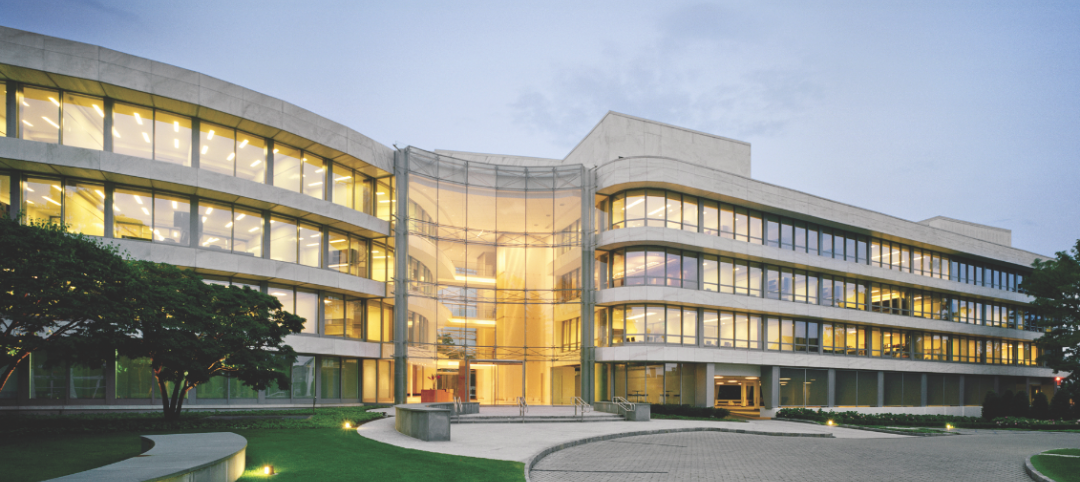Last Friday, Spiezle Architectural Group, a 63-year-old design and planning firm, held a ribbon-cutting ceremony for its new 15,000-sf office in Hamilton in central New Jersey.
Spiezle had recently relocated to its new headquarters from a former bank building in nearby Trenton, N.J., where the company had operated for over 25 years. Spiezle executives spent over a year looking for the right space, and its move included filling four 30-yard dumpsters with stuff that would not be traveling with Spiezle to its new home.
The headquarters relocation can be seen as the culmination of some big changes at the company over the past few years, including the appointment last November of 14-year company veteran Tom Perrino, AIA, LEED AP, as Spiezle’s President and CEO, after he served as interim CEO for 11 months.
Perrino is also a member of Spiezle’s five-person board of directors, which since March 2015 has been chaired by Anthony “Skip” Cimino, a Partner with the lobbying firm Kaufman Zita Group.
As part of its strategic growth plan, Spiezle last September acquired GS Architects, a Havertown, Pa.-based firm founded in 1999, which is strong in the hospital and interior design sectors. That transaction increased the employee-owned Spiezle’s workforce to 60, and extended its market reach to western Pennsylvania. “We are now servicing clients in Pittsburgh,” says Perrino.
The company considered vertically integrating into engineering, but decided against that at this time. However, it is seeking more landscape design work, after bringing on Adam Alexander, LLA, RLA, as its director of landscape architecture. Alexander, who had previously been with Partner Engineering & Science, has added a staff person and is looking to bring on a second.
Spiezle’s expertise now includes the educational sector (it has 30-plus Higher Ed clients and is a K-12 regional leader), acute healthcare, senior living, government, non-profit, and corporate office buildings.
Tom Perrino (right), Spiezle Architectural Group's President and CEO, with (from left) principals Scott Downie, AIA, LEED AP, and Steve Leone, AIA, LEED AP BD+C. They lead the employee-owned firm with 60 associates. Image: John Caulfield/BD+C
One of the firm’s more prominent assisted living projects, Parker at Monroe (N.J.), is a long-term care community with 96 residents, consisting of six “small homes” of 16 residents each, which are connected to a community center. Two small homes cater to residents with early to mid-stage dementias, three for residents with mid- to late-stage dementias, and one small home for people who are cognitively well but live with physical challenges.
Perrino says his firm generally prefers to avoid “fee-based” projects, and relies more on business from repeat customers. “We’re not a ‘one-and-done’ firm,” he says.
The company is involved in about 100 projects in various stages, more than 60 as AOR. Its recent commissions include the design for a new emergency services training center in Huntingdon County, N.J.; and a health sciences building at Neumann University in Aston, Pa. Voters in Hazlet, N.J., recently approved a $43 million bond for renovations at eight schools, for which Spiezle will be performing the design. The firm is also designing a $50 million science building at New Jersey City University scheduled for completion next year.
The company’s new headquarters, with its open-concept interior design that bathes the workspace with natural light, seeks to foster collaboration. Perrino says that Spiezle’s goal is “sustained growth,” not only for the company but also for its employees: it recently added “associate principal” to its organizational chart, as a way for its employee-owners to move up the ladder.
Related Stories
| Dec 7, 2010
Product of the Week: Petersen Aluminum’s column covers used in IBM’S new offices
IBM’s new offices at Dulles Station West in Herndon, Va., utilized Petersen’s PAC-1000 F Flush Series column covers. The columns are within the office’s Mobility Area, which is designed for a mobile workforce looking for quick in-and-out work space. The majority of workspaces in the office are unassigned and intended to be used on a temporary basis.
| Dec 6, 2010
Honeywell survey
Rising energy costs and a tough economic climate have forced the nation’s school districts to defer facility maintenance and delay construction projects, but they have also encouraged districts to pursue green initiatives, according to Honeywell’s second annual “School Energy and Environment Survey.”
| Dec 2, 2010
GKV Architects wins best guest room design award for Park Hyatt Istanbul
Gerner Kronick + Valcarcel, Architects, PC won the prestigious Gold Key Award for Excellence in Hospitality Design for best guest room, Park Hyatt Macka Palas, Istanbul, Turkey. Park Hyatt Maçka Palace marries historic and exotic elements with modern and luxurious, creating a unique space perpetuating Istanbul’s current culture. In addition to the façade restoration, GKV Architects designed 85 guestrooms, five penthouse suites, an ultra-hip rooftop bar, and a first-of-its-kind for Istanbul – a steakhouse, for the luxury hotel.
| Dec 2, 2010
U.S Energy Secretary Chu announces $21 Million to improve energy use in commercial buildings
U.S. Energy Secretary Steven Chu announced that 24 projects are receiving a total of $21 million in technical assistance to dramatically reduce the energy used in their commercial buildings. This initiative will connect commercial building owners and operators with multidisciplinary teams including researchers at DOE's National Laboratories and private sector building experts. The teams will design, construct, measure, and test low-energy building plans, and will help accelerate the deployment of cost-effective energy-saving measures in commercial buildings across the United States.
| Nov 29, 2010
Data Centers: Keeping Energy, Security in Check
Power consumption for data centers doubled from 2000 and 2006, and it is anticipated to double again by 2011, making these mission-critical facilities the nation’s largest commercial user of electric power. Major technology companies, notably Hewlett-Packard, Cisco Systems, and International Business Machines, are investing heavily in new data centers. HP, which acquired technology services provider EDS in 2008, announced in June that it would be closing many of its older data centers and would be building new, more highly optimized centers around the world.
| Nov 29, 2010
New Design Concepts for Elementary and Secondary Schools
Hard hit by the economy, new construction in the K-12 sector has slowed considerably over the past year. Yet innovation has continued, along with renovations and expansions. Today, Building Teams are showing a keener focus on sustainable design, as well as ways to improve indoor environmental quality (IEQ), daylighting, and low-maintenance finishes such as flooring.
| Nov 29, 2010
Renovating for Sustainability
Motivated by the prospect of increased property values, reduced utility bills, and an interest in jumping on the sustainability bandwagon, a noted upturn in green building upgrades is helping designers and real estate developers stay busy while waiting for the economy to recover. In fact, many of the larger property management outfits have set up teams to undertake projects seeking LEED for Existing Buildings: Operations & Maintenance (LEED-EBOM, also referred to as LEED-EB), a certification by the U.S. Green Building Council.
| Nov 23, 2010
The George W. Bush Presidential Center, which will house the former president’s library
The George W. Bush Presidential Center, which will house the former president’s library and museum, plus the Bush Institute, is aiming for LEED Platinum. The 226,565-sf center, located at Southern Methodist University, in Dallas, was designed by architect Robert A.M. Stern and landscape architect Michael Van Valkenburgh.
| Nov 23, 2010
Honeywell's School Energy and Environment Survey: 68% of districts delayed or eliminated improvements because of economy
Results of Honeywell's second annual “School Energy and Environment Survey” reveal that almost 90% of school leaders see a direct link between the quality and performance of school facilities, and student achievement. However, districts face several obstacles when it comes to keeping their buildings up to date and well maintained. For example, 68% of school districts have either delayed or eliminated building improvements in response to the economic downturn.


